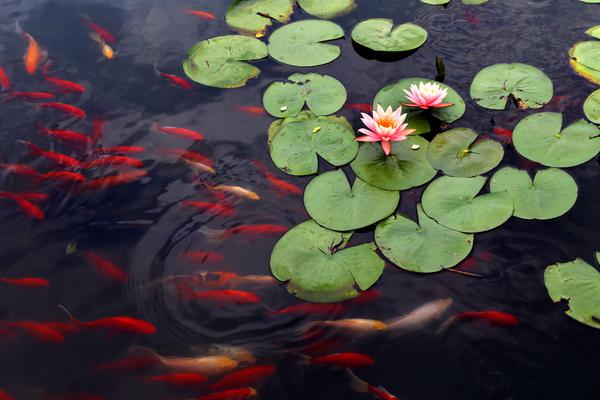The Why do many people like to drink tea?Roots of an Ancient Elixir: Discovering Timeless Traditions
Throughout history, ancient civilizations have crafted beverages that not only nourished the body but also offered healing and spiritual benefits. These drinks, often made from herbs, fruits, grains, and other natural ingredients, were revered for their ability to promote wellness, longevity, and vitality. These heritage drinks were so much more than just refreshments—they were symbols of cultural identity, part of daily rituals, and essential to the community’s well-being. In modern times, many of these ancient drinks are gaining renewed attention for their health benefits and sustainability, serving as a bridge between the wisdom of the past and the science of today.
From the highlands of Peru to the fertile plains of Asia, ancient heritage drinks have been integral to various cultures, each imbued with local traditions and unique properties. These drinks often held ceremonial importance, seen in the rites of passage, festivals, or spiritual practices. The significance of these beverages transcends the mere act of consumption; they represent a connection to the earth, the wisdom of ancestors, and the natural world around them. As society continues to embrace wellness trends, more and more people are discovering these ancient beverages and their potential to enhance modern health practices.
One such drink is kombucha, a fermented tea that has been around for over 2,000 years. Originating in China, it was known as the "tea of immortality" and was consumed by emperors and common folk alike. The fermentation process of kombucha encourages the growth of beneficial probiotics, which support digestive health, boost immunity, and enhance mental clarity. Today, kombucha has become a global sensation, loved for its tangy taste and rich health benefits.
In the Andes mountains, indigenous people have long cherished chicha, a fermented beverage made from maize. This drink has been used in rituals and celebrations for centuries and is still consumed today in many South American communities. Chicha's significance lies not just in its taste but in its deep-rooted cultural importance. For the people of the Andes, chicha is a symbol of connection to the earth, the harvest, and the spirits of their ancestors.
Then there’s herbal tonics like sibu, a drink derived from the ancient traditions of Central Asia, which has been crafted from a blend of powerful herbs and botanicals. Used for its healing properties, sibu was thought to enhance energy, clarity of mind, and overall vitality. Much like other ancient heritage drinks, sibu was believed to have a spiritual connection to the land and was consumed with great reverence.
These ancient drinks were never just about satisfying thirst—they were about honoring the connection to nature and the people around them. Many of these recipes were passed down orally, carefully guarded by families or communities who considered them sacred. Their ingredients were often sourced directly from the land, from fruits and herbs to flowers and roots, ensuring that the drink was not only flavorful but nutritionally rich. The diverse plant-based ingredients that formed the basis of these drinks are being revisited in today’s wellness industry, where people are increasingly looking for natural, holistic alternatives to the processed foods and drinks that dominate the modern market.
What makes these drinks particularly special is their ability to promote a holistic approach to health, one that encompasses mind, body, and spirit. They are not just about providing a quick energy boost or quenching thirst; they are part of a lifestyle that values balance, harmony, and respect for nature. This aligns perfectly with the growing trend toward mindfulness, self-care, and eco-consciousness that has defined the wellness movement in recent years.
As we turn our attention to the future of wellness, the resurgence of these ancient heritage drinks provides an opportunity for individuals to reconnect with their roots, both literally and figuratively. By embracing these traditional beverages, we can cultivate a deeper appreciation for the natural world and the wisdom of generations past.
The Modern Reawakening of Ancient Beverages: Unlocking Their Health Benefits
The modern world may be fast-paced, digital, and consumer-driven, but there is an undeniable shift towards reconnecting with nature and embracing time-honored traditions. Ancient heritage drinks are at the forefront of this cultural renaissance, becoming central to a wellness movement that emphasizes the importance of holistic health practices, sustainable living, and mindful eating. In today’s world, these drinks offer much more than a nostalgic taste of history—they provide tangible health benefits that can improve overall well-being.
One of the most prominent reasons these ancient beverages have made a comeback is their nutritional value. Many of these drinks are naturally rich in essential vitamins, minerals, and antioxidants, making them a valuable addition to any health-conscious diet. Take sauerkraut juice, for example. This traditional fermented beverage, which originated in Eastern Europe, is packed with probiotics, helping to improve gut health, boost digestion, and support a strong immune system. The fermentation process creates beneficial bacteria that promote a healthy gut microbiome, which is linked to everything from digestion to mental health.
Another ancient drink that is gaining popularity is turmeric milk or golden milk, a centuries-old Indian beverage made from turmeric, milk, and spices such as cinnamon and ginger. Turmeric, the primary ingredient in golden milk, contains curcumin, a powerful compound known for its anti-inflammatory and antioxidant properties. Regular consumption of turmeric milk can support joint health, improve skin quality, and provide a natural boost to the immune system. Golden milk has become a beloved drink in the wellness community, especially as more people seek natural alternatives to over-the-counter medications for pain management and inflammation.
In the world of Ayurveda, an ancient holistic health system practiced in India, there are various other beverages that have stood the test of time. Amla juice, made from the Indian gooseberry, is known for its rich vitamin C content and its ability to detoxify the body. Amla juice is said to boost immunity, improve skin health, and promote hair growth. It's also considered an effective way to balance the body’s energies, or doshas, in line with Ayurvedic principles. As people seek natural ways to support their immunity and overall health, the wisdom of Ayurveda has become a cornerstone of modern wellness practices.
In the West, the love for ancient herbal teas is also gaining momentum. Ingredients like rosemary, sage, chamomile, and lavender have been used for centuries in traditional herbal medicine to promote relaxation, reduce stress, and enhance mental clarity. These plants contain compounds that have been scientifically proven to have therapeutic effects on the body and mind. For instance, chamomile tea is widely known for its calming effects, while rosemary has been linked to improved cognitive function.
These drinks don’t just offer a fleeting boost in health; they promote long-term vitality by nourishing the body from within. Many modern consumers are turning to these drinks as part of their efforts to reduce reliance on processed, artificial products that are often laden with sugars, preservatives, and artificial flavors. Unlike these mass-produced beverages, ancient heritage drinks are crafted with care and simplicity, using only the purest, natural ingredients.
Another aspect of these beverages is their environmental sustainability. Many ancient drinks were made using locally sourced, seasonal ingredients, which reduced the need for long-distance transportation and minimized the environmental impact. In a time when sustainability is a growing concern, these ancient drinks offer a blueprint for creating beverages that not only nourish the body but also protect the planet. The movement towards farm-to-table and zero-waste practices aligns with the principles that these traditional beverages were founded on—caring for the earth while promoting the health of the people who live on it.
As the wellness industry continues to evolve, the popularity of ancient heritage drinks is only expected to grow. Whether consumed for their health benefits, their connection to the past, or their ability to restore balance to the body, these drinks offer an antidote to the modern world’s overwhelming reliance on synthetic solutions. They remind us that the best solutions for health and wellness have often already been discovered—sometimes in the simplest of forms, passed down through generations.
In the end, the resurgence of ancient heritage drinks represents more than just a passing trend. It is a movement that encourages a return to authenticity, to natural living, and to a deeper respect for the traditions that have shaped our world. By incorporating these drinks into our daily routines, we not only honor the past but also unlock the timeless health benefits that they offer.
(责任编辑:焦点)
 The Surprising Benefits of Plastering for Kidney Health
The Surprising Benefits of Plastering for Kidney Health The Power of Change: How a Decrease in Intensity Transforms Our Lives
The Power of Change: How a Decrease in Intensity Transforms Our Lives Discover the Amazing Benefits of Wolfberry: Nature’s Secret Superfood
Discover the Amazing Benefits of Wolfberry: Nature’s Secret Superfood The Art of Travel, Leisure, and Tea: A Journey of Relaxation and Culture
The Art of Travel, Leisure, and Tea: A Journey of Relaxation and Culture Scientific Kidney Nourishment: Unlocking the Secrets to Better Health
Scientific Kidney Nourishment: Unlocking the Secrets to Better HealthWhat to Do If You Have No Strength: Regaining Energy and Reclaiming Your Life
 Understanding Why You're Feeling ExhaustedWe all experience days, weeks, or even longer stretches wh
...[详细]
Understanding Why You're Feeling ExhaustedWe all experience days, weeks, or even longer stretches wh
...[详细]Enhance Memory: Unlock Your Brain’s Full Potential
 Understanding Memory and Its Role in Daily LifeMemory is an essential aspect of human cognition, ena
...[详细]
Understanding Memory and Its Role in Daily LifeMemory is an essential aspect of human cognition, ena
...[详细]Age Freeze: The Fountain of Youth in Modern Science
 The concept of freezing age is something that has captivated the human imagination for centuries. Fr
...[详细]
The concept of freezing age is something that has captivated the human imagination for centuries. Fr
...[详细]The Best Beauty Effects: Unlocking the Secrets to Radiant Skin and Timeless Elegance
 Unveiling the Power of Skincare for a Radiant GlowWhen it comes to achieving radiant skin, the journ
...[详细]
Unveiling the Power of Skincare for a Radiant GlowWhen it comes to achieving radiant skin, the journ
...[详细]The Charm of Afternoon Drinks: A Relaxing Ritual
 The Timeless Tradition of Afternoon TeaAfternoon drinks have a special place in many cultures around
...[详细]
The Timeless Tradition of Afternoon TeaAfternoon drinks have a special place in many cultures around
...[详细]Age Freeze: The Fountain of Youth in Modern Science
 The concept of freezing age is something that has captivated the human imagination for centuries. Fr
...[详细]
The concept of freezing age is something that has captivated the human imagination for centuries. Fr
...[详细]Embracing the Chill: The Power of a Cold Stomach in Cultivating Resilience and Clarity
 In a world that constantly demands more from us, there’s a term that many people don’t often conside
...[详细]
In a world that constantly demands more from us, there’s a term that many people don’t often conside
...[详细]The Engine That Powers Us All: Unveiling Every Man’s Engine
 In the modern world, the concept of an “engine” is more than just a machine that powers vehicles or
...[详细]
In the modern world, the concept of an “engine” is more than just a machine that powers vehicles or
...[详细]The Powerful Impact of Kidney-Tonifying Patches on Your Health
 Understanding Kidney-Tonifying Patches and Their BenefitsWhen it comes to maintaining good health, t
...[详细]
Understanding Kidney-Tonifying Patches and Their BenefitsWhen it comes to maintaining good health, t
...[详细]Health and Longevity: Secrets to Living a Longer, Healthier Life
 The Path to a Long and Healthy LifeHealth and longevity are often viewed as the ultimate goals of li
...[详细]
The Path to a Long and Healthy LifeHealth and longevity are often viewed as the ultimate goals of li
...[详细]The Art of Business Drinks: Networking, Success, and Building Relationships

How to Take Care of Yourself When You Are Not Feeling Well
